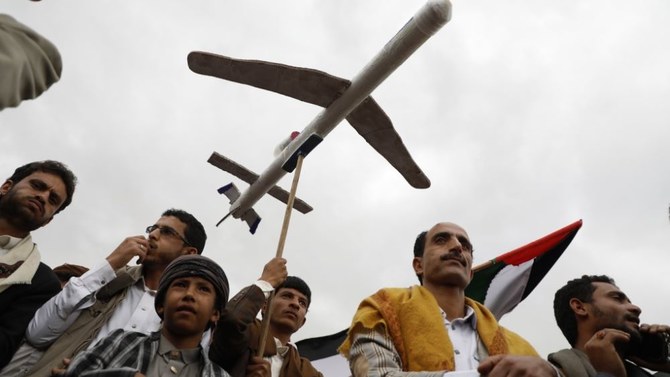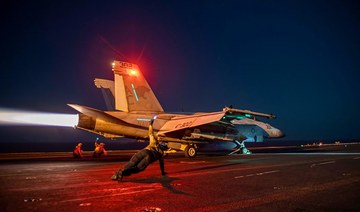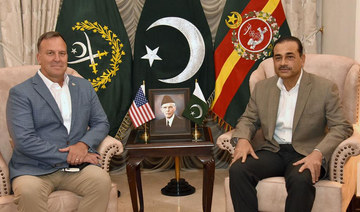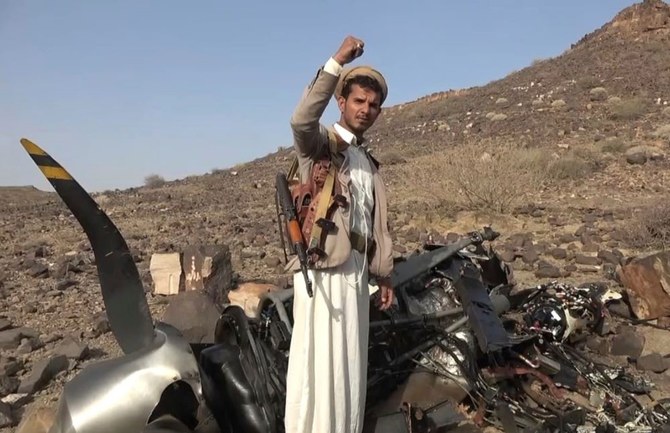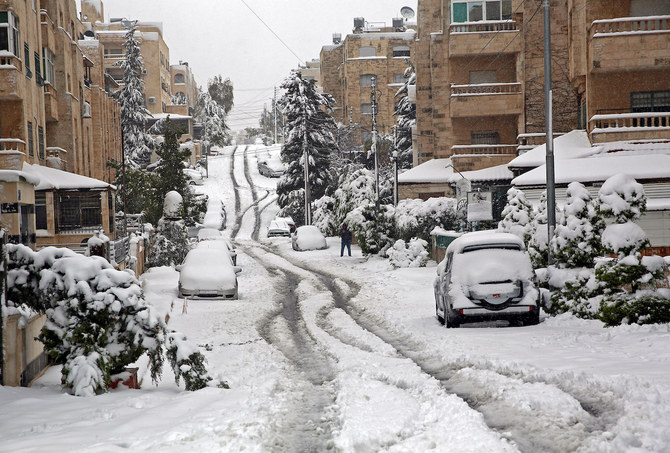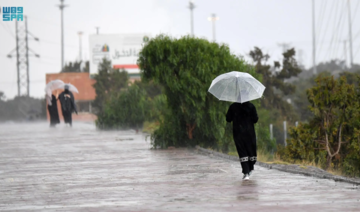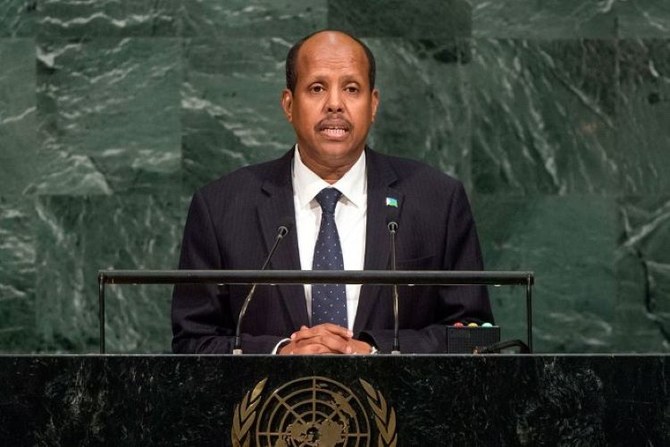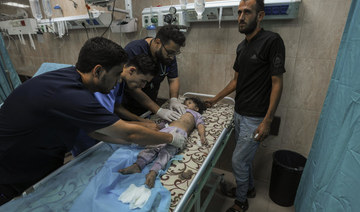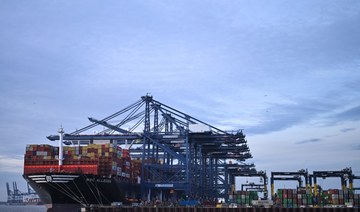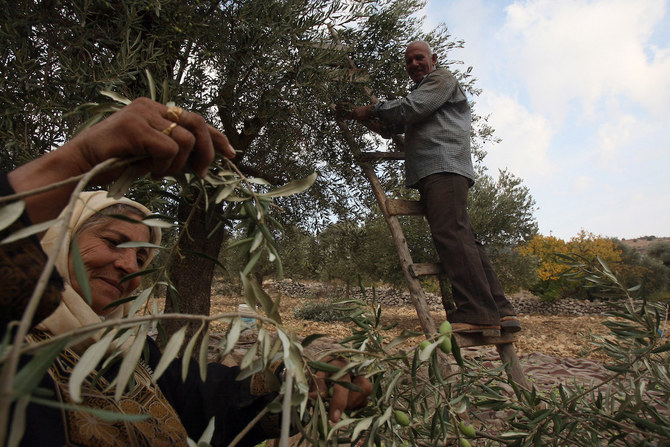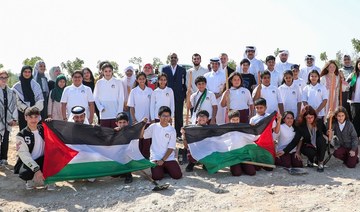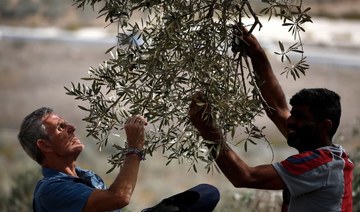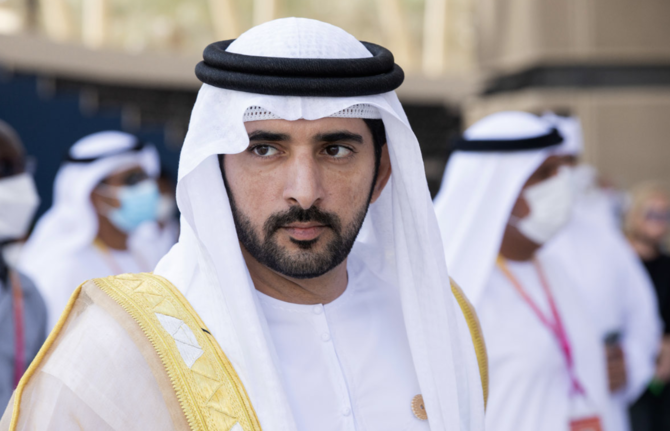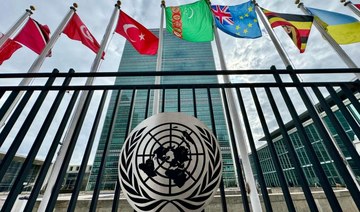AL-MUKALLA: More than 90 ballistic missiles and drones fired by Iran and the Houthis in Yemen at Israel and international shipping in the Red Sea and the Gulf of Aden were intercepted by US military and navy forces, supported by ships from European Command, on Saturday and Sunday, according to two US military statements on Monday.
The US Central Command, or CENTCOM, said in a statement on Monday afternoon that its troops destroyed four drones fired by the Houthis from controlled areas in Yemen between 4:00 a.m. and 9:15 p.m. on Sunday.
On Saturday, the Houthis fired one anti-ship ballistic missile against US Navy and commercial ships in the Gulf of Aden.
“There were no injuries or damage reported by US, coalition, or commercial ships,” CENTCOM said.
In a separate statement issued early on Monday, CENTCOM stated that its forces, backed by US European Command ships, destroyed more than 80 drones and at least six ballistic missiles launched by Iran and the Houthis in Yemen at Israel on Saturday and Sunday mornings.
The intercepted volley of drones and missiles includes a ballistic missile destroyed on its launcher vehicles, as well as seven drones destroyed in Houthi-controlled parts of Yemen before launch.
“Iran’s continued unprecedented, malign, and reckless behavior endangers regional stability and the safety of US and coalition forces,” CENTCOM said.
“CENTCOM remains postured to support Israel’s defense against these dangerous actions by Iran. We will continue to work with all our regional partners to increase regional security,” the military said in the second statement.
Iran blasted hundreds of ballistic missiles, cruise missiles and drones toward Israel on Saturday night in retaliation for a purported Israeli airstrike in Damascus that killed senior Revolutionary Guards leaders.
The Houthis have not formally confirmed their participation in Iran’s retaliatory strike, despite reports from the US Central Command that missiles and drones launched by the Yemeni militia at Israel were intercepted.
Ambrey, a UK marine security company, also said that the Houthis launched drones at Israel during the Iran strike.
Since November, the Houthis have shot hundreds of ballistic missiles and drones toward Israel and ships in the Red Sea, Bab Al-Mandab Strait and the Gulf of Aden, claiming that their acts are in support of the Palestinian people.
The Houthis claim that they want to put an end to Israel’s heavy shelling of the Palestinian Gaza Strip while also allowing humanitarian aid to reach the territory.
The US and UK have launched strikes against Houthi sites in Yemen since mid-January, attempting to force the Yemeni group to cease their attacks on ships.
Houthi media said on Sunday that the US and UK had launched strikes on an area under their control in the southern province of Taiz.
Meanwhile, deputy foreign minister Hussein Al-Ezzi has threatened to strike a recently built airport in the Red Sea town of Mokha to prevent what he calls “hostile” countries, such as the US as well as Israel, from using the airport as a platform for operations against them.
“We will not allow any Americans, Israelis or hostile parties to use Mokha Airport,” Al-Ezzi said on X.
Yemen’s Aviation and Metrology Authority in Aden announced earlier this month that the Mokha Airport in Taiz province was ready for flights into and out of Yemen.
Sadiq Dwaid, a spokesman for the National Resistance Forces, a military unit commanded by Presidential Leadership Council member Tareq Saleh, refuted the Houthi charges that the airport was open to Americans and Israelis.
“Mokha Airport is a civilian airport built to serve civilians and is not utilized for military operations. Any attempts to target the airport will be met with severe retribution,” Dwaid said on X.




